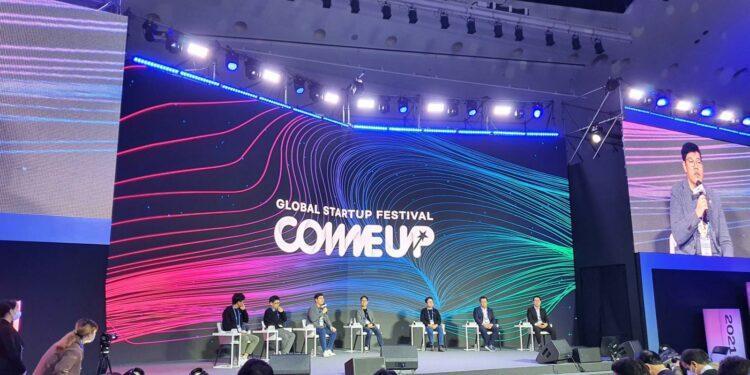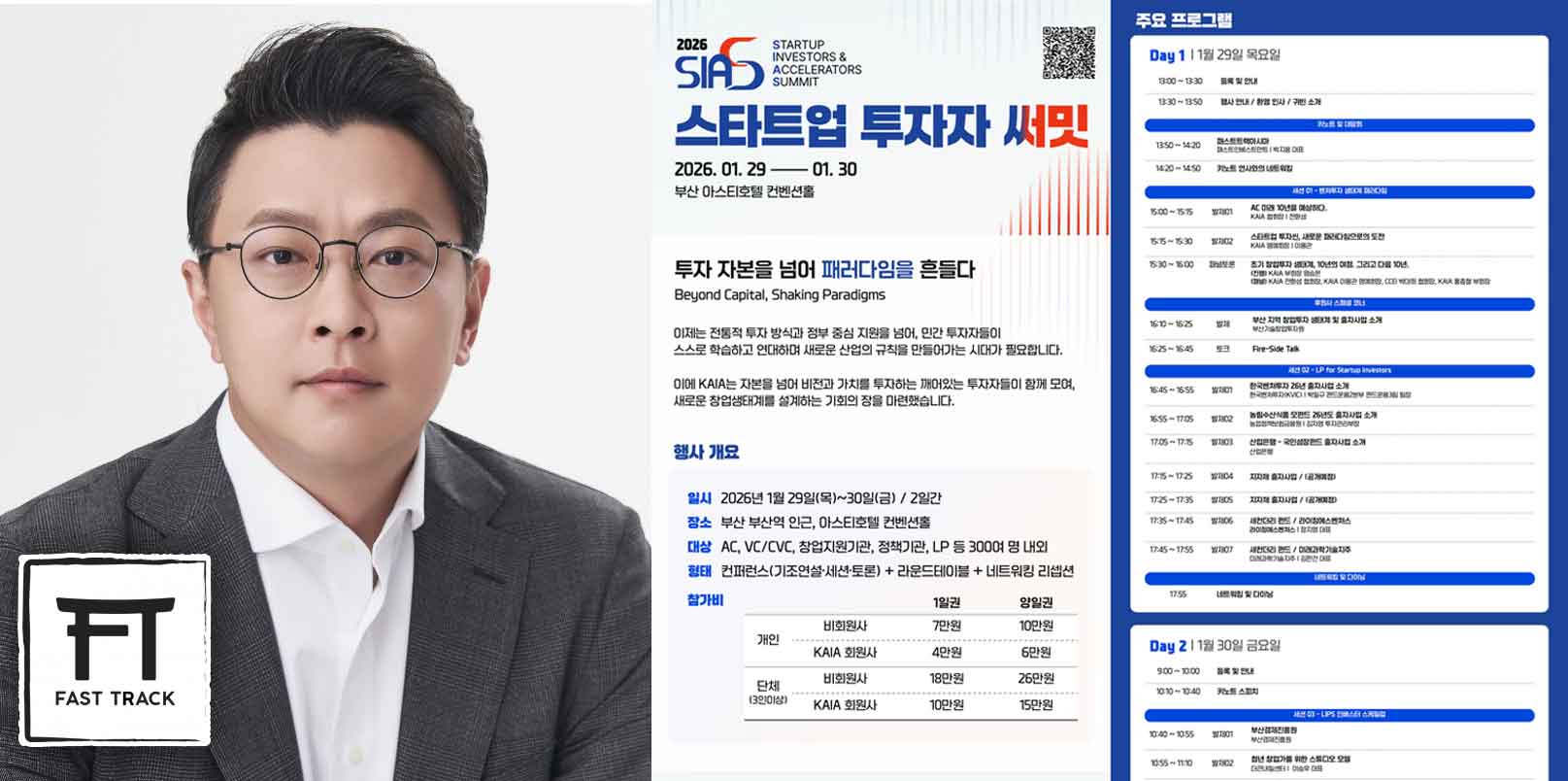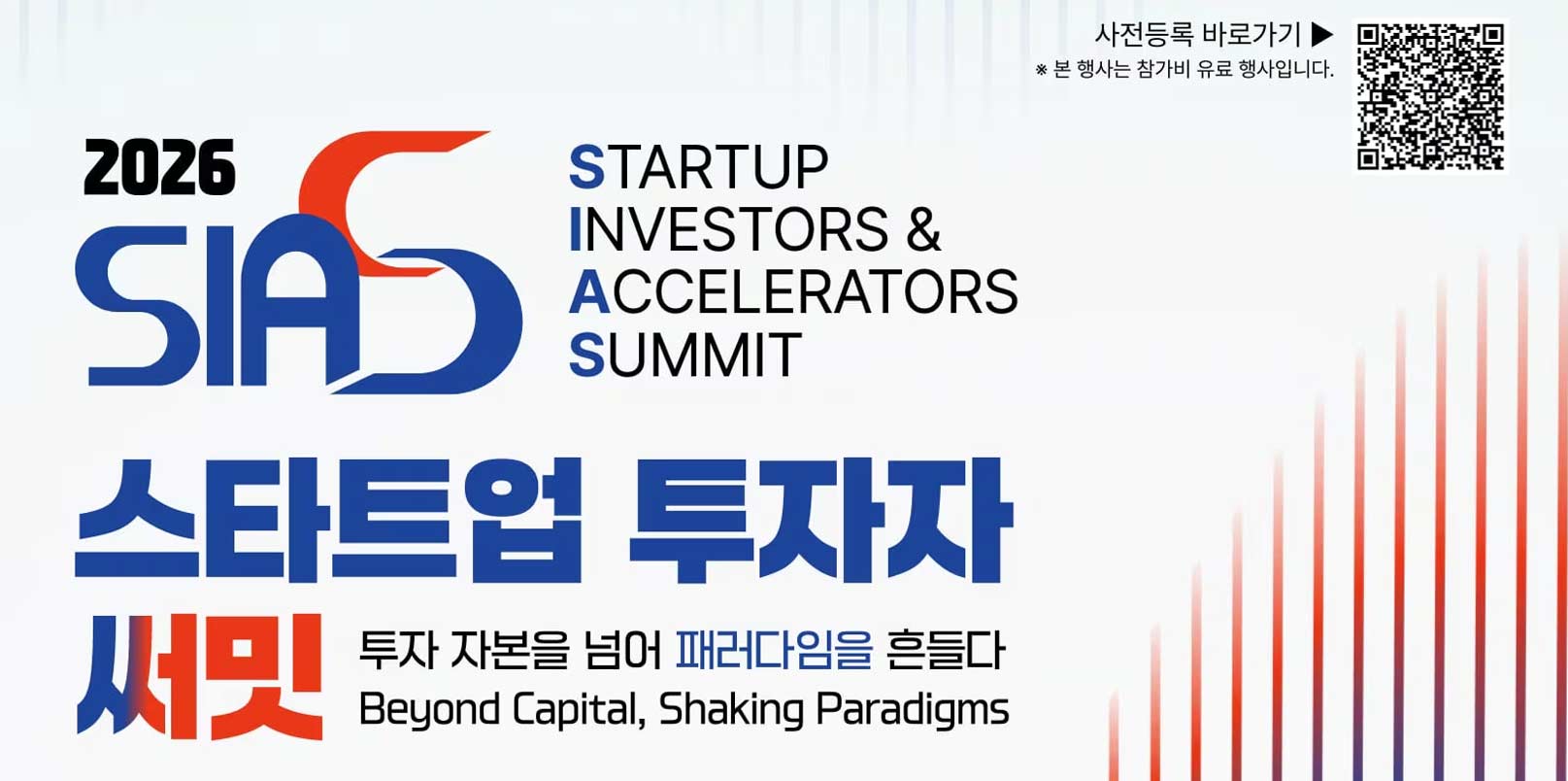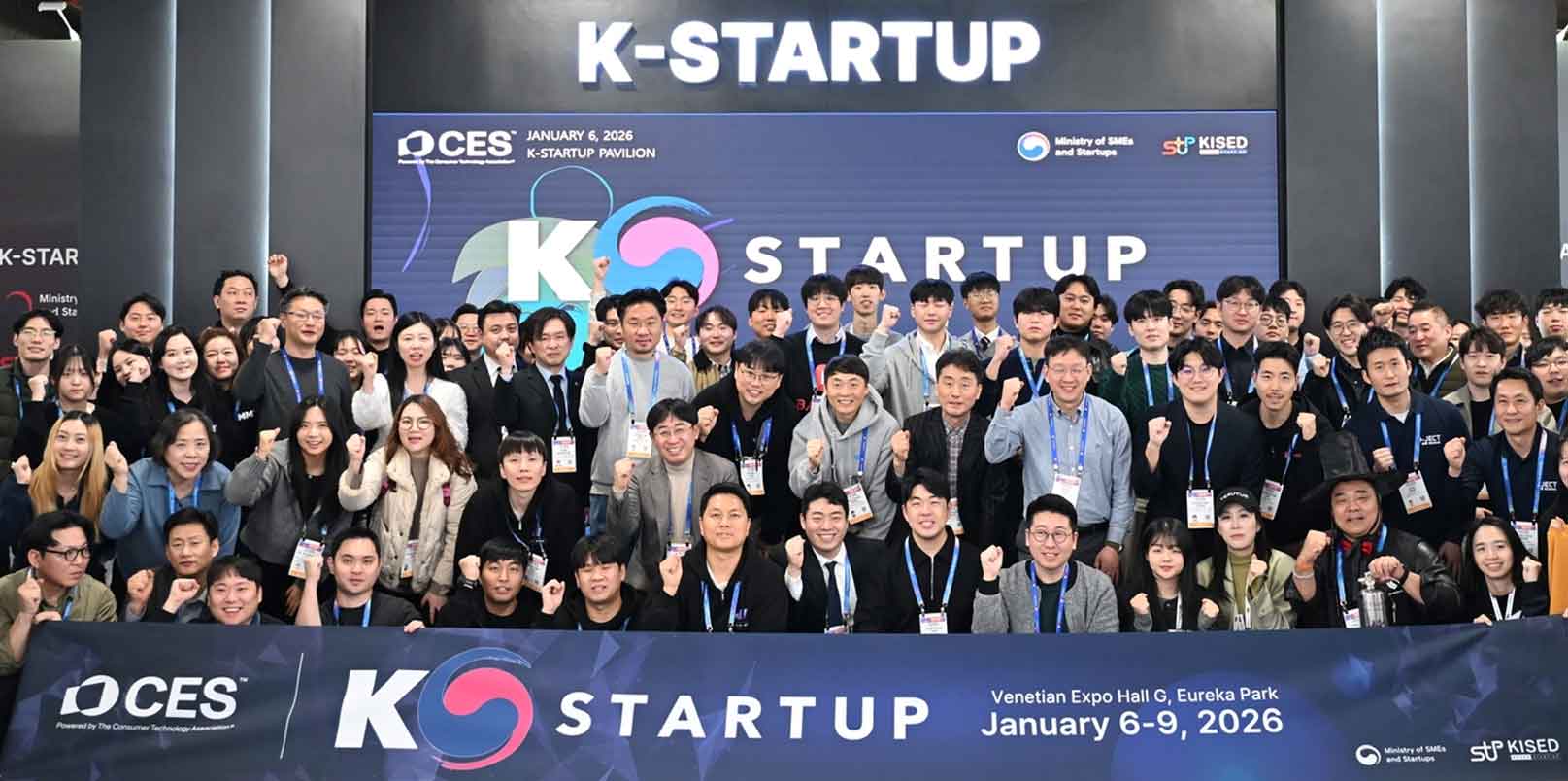South Korea’s biggest event for global and Korean startups – COMEUP 2021, saw many insightful panel discussions, expert talks, startup pitches, and more. COMEUP 2021, under the theme of Meet the Future – Transformation, suggests ways for startups to look at changes in the market environment after Corona and prepare for the upcoming future. The 3-day global startup festival is a prominent event in Asia. This year, there were some great discussions to shape the future course of Korean Startup in different sectors designed as fireside chats followed by a panel discussion in the end.
South Korean Startups Going into the New Space Age
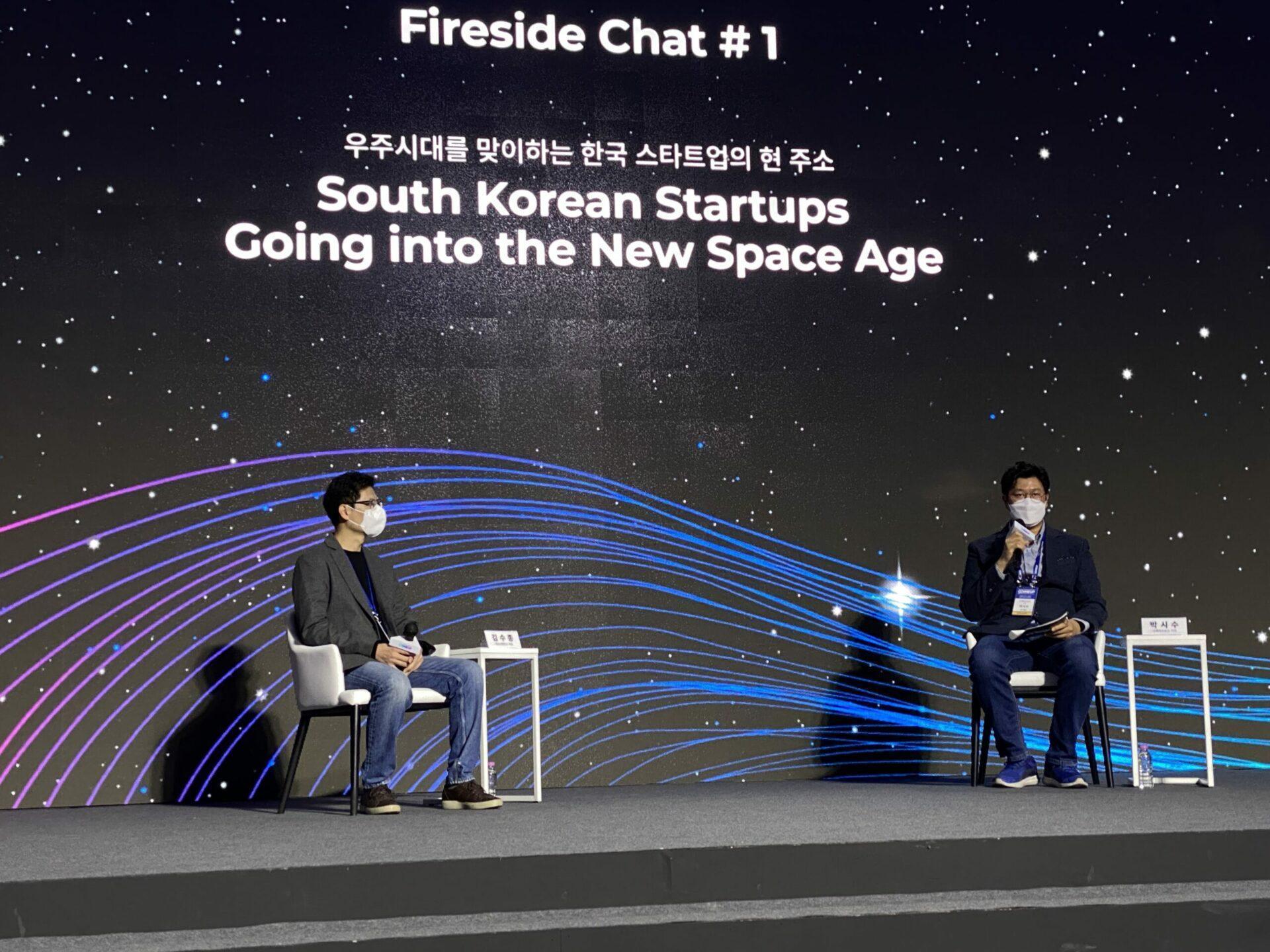
During the fireside chat, the panelists discussed the course of action that the Korean space startups should take to make their mark internationally in the field of the burgeoning Space Industry. The chat also dealt with the challenges and opportunities that a startup might face in the space race.
Sisoo Park moderated the session. He covers space industries in South Korea, Japan, and other Asian countries at SpaceNews. Park worked at The Korea Times — South Korea’s leading English language newspaper — from 2007 to 2020.
The panelist for the session was Soojong Kim. He established INNOSPACE in 2017 and has served as the CEO since. He is currently promoting the commercialization of satellite launch services using small satellite launch vehicles. Starting with a test launch next year, Kim aims to commercialize the nation’s first civilian satellite launch vehicle in 2023.
Both the panelists discussed the opportunities that the Space industry provides strictly from the Korean Startup’s perspective. They agreed that, unlike when KSLV1 was launched, both investment and interest in the space industry have skyrocketed. It is the right time for Korean Space Startups to capitalize on the booming demand from the space industry.
Soojong Kim said that Korea is still at a nascent phase in the space sector, but this is still the right time to participate in the Private Space sector race. He explained in detail that the space market is not only about rockets and satellites, but many subsidiary industries will boom around the flourishing international space industry. That is where Korean Startups should look for an opportunity.
Autonomous Driving Technology in South Korea: Where Are We Now?
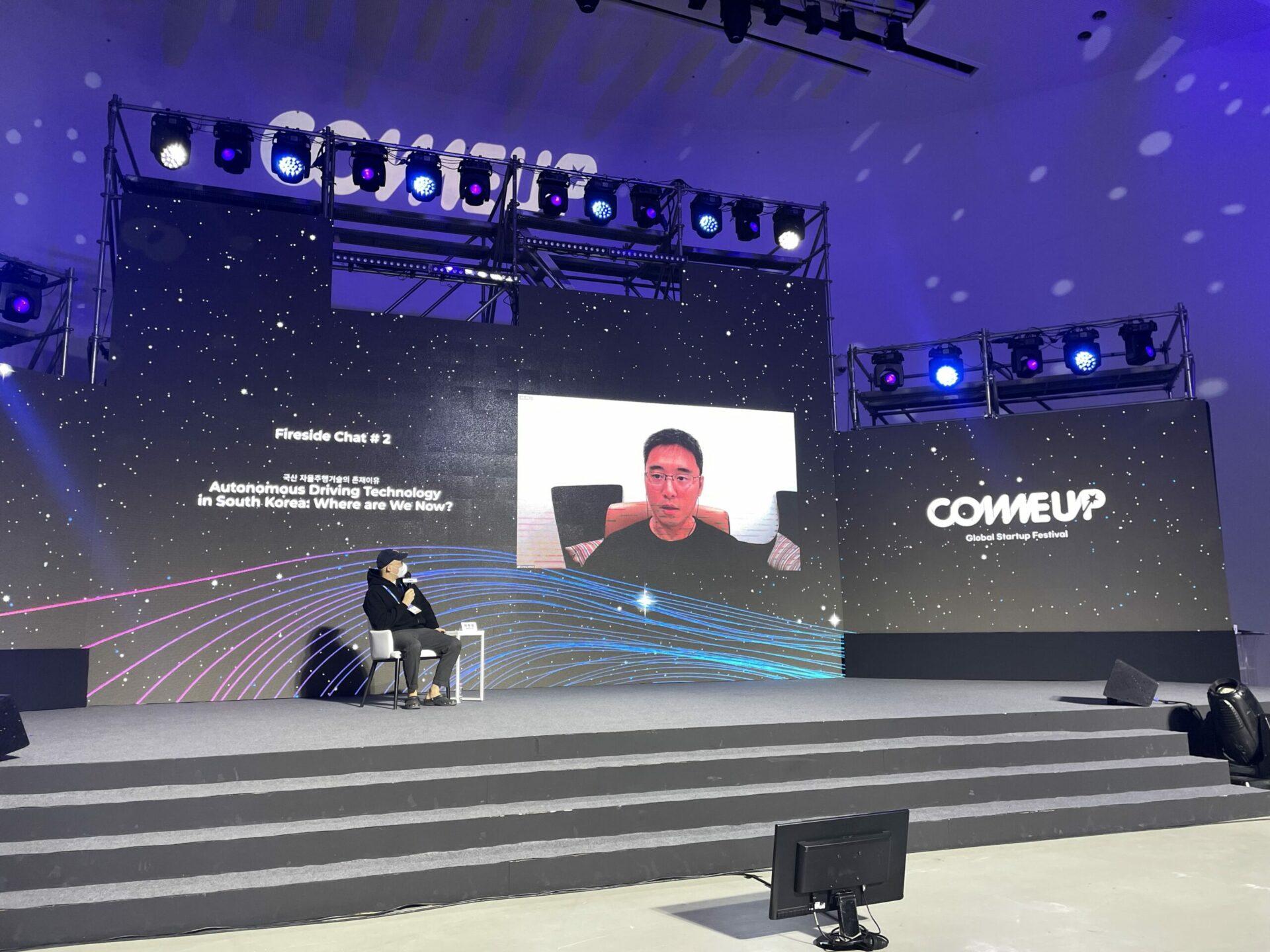
Yekeun moderated this session. He is a developer and an early member of Microsoft Hololens science and Tesla Autopilot. He participated in developing head-tracking and eye-tracking systems for Hololens and led Tesla HW2 Full Self-Driving prototype development.
The panelist for the session was HanBin Lee, CEO of Seoul Robotics. Seoul Robotics participated in the 2017 Udacity-DiDi Self-Driving Car Challenge, ranking 10th among 2,000 teams around the world. Seoul Robotics is growing rapidly and is taking steps towards becoming a unicorn startup in industry 4.0.
The panelist discussed in detail the autonomous car technologies. They agreed that both technologies like smart cameras used by Tesla and LIDAR technology that other car companies use are evolving. The autonomous car market is laden with opportunities in all segments like data visualization, software enhancement and better hardware. There is a lot to achieve for an error-free autonomous driving experience worldwide and Korean startups have a lot to contribute.
HanBin Lee said that most autonomous car companies are still gathering more driving data, and they will need better software to visualize that data and then use it to make their products better. At the same time, few companies have sensor-heavy autonomous driving cars, which are too expensive. To achieve the dream of autonomous driving, these companies will require to scale down their costs by cutting on sensors and introducing affordable technology, which is the arena where the startup will need to step in.
Full Space Ahead: Accelerating Government and Commercial Collaboration
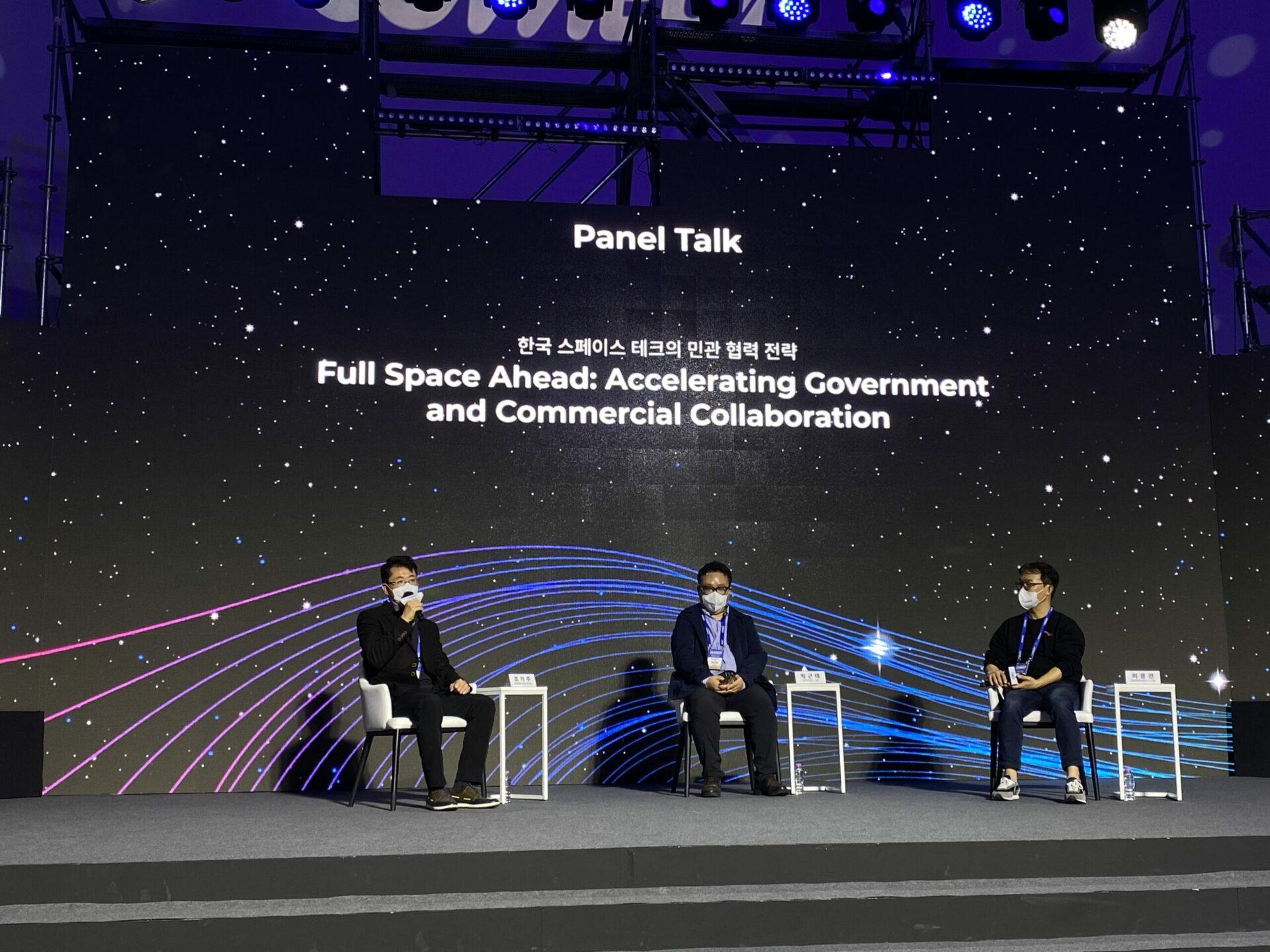
The moderator for the session was Yongkwan Lee, CEO of Bluepoint Partners. He founded Bluepoint Partners in 2014 with an interest in growing and investing in Deep Tech startups. Lee has successfully exited his tech startup, Plasmart, in an M&A deal in the past, through which he gained insights necessary to develop tech startup-curated accelerating programs.
The panelists were Kiejoo Cho, Team Lead of Korea Aerospace Research Institute, and Keuntae Park, Desk Editor at DongaScience. The panelist discussed in length the evolution that the Korean space industry has seen since the launch of KSLV1.
The panelists agreed that KSLV1 was designed with Russian collaboration, but Korea successfully launched the KSLV2 rocket in recent times, which was entirely designed and developed in the country. The panel experts delved into the nuances of the Space industry and its growth in Korea and agreed that startups should not be confined to designing rockets and satellites. The panelists said that the Space industry is growing by leaps and bounds. Soon, there will be considerable demand for supporting technology both in hardware and software, and Korean startups should work in this segment.


